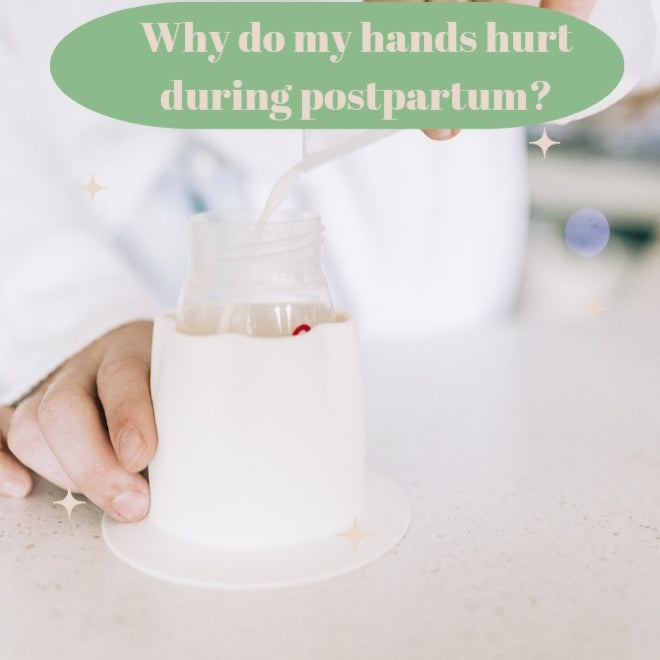Why do my hands hurt during postpartum?
Postpartum hand pain is pain in the hands that can occur after giving birth. This pain can be caused by a condition called carpal tunnel syndrome, which is caused by pressure on the median nerve in the wrist. Symptoms of carpal tunnel syndrome include tingling, numbness, and weakness in the hand and fingers. This condition can be treated with rest, physical therapy, and, in severe cases, surgery.
What causes postpartum hand pain:
Postpartum hand pain is usually caused by a condition called carpal tunnel syndrome, which is caused by pressure on the median nerve in the wrist. The median nerve runs from the forearm into the hand, and when it is compressed or squeezed, it can cause pain, tingling, numbness, and weakness in the hand and fingers. During pregnancy, fluid retention can cause the tissues in the wrist to swell, which can put pressure on the median nerve and lead to carpal tunnel syndrome. This is more common in women who have a pre-existing condition such as arthritis or diabetes, or in women who have had multiple pregnancies. Other factors that can contribute to postpartum hand pain include repetitive motions such as typing or holding a baby for long periods of time, as well as carrying a heavy load or overuse of the hand. It's important to note that postpartum hand pain can also be caused by other conditions such as tendinitis or injury and to consult with a doctor for proper diagnosis and treatment.
How to bottle prep when you're experiencing postpartum hand pain:
If you're experiencing postpartum hand pain and need to prepare bottles for your baby, there are a few ways to make the process more manageable:
1.)Use an electric bottle warmer: An electric bottle warmer can help to make bottle prep easier by heating up bottles quickly and evenly without having to hold the bottle or use a stovetop.
2.)Use a bottle prep machine: Some machines can sterilize, warm, and dispense formula or breastmilk, reducing the need to do it manually. Ask for help: Ask your partner, family members, or friends to help you with bottle prep tasks.
3.)Pre-make bottles: If possible, prepare several bottles in advance and store them in the refrigerator or freezer, so they're ready to use when you need them. We suggest doing the pitcher method.
4.)Use one-handed techniques: If you need to hold the bottle while you're preparing it, try using a Tunkie & Co. Holder to hold the bottle and the other hand to add formula or breastmilk. Using Tunkie & Co.holder helps to eliminate pressure on the hands.
5.)Use a bottle holder: Using a Tunkie & Co. bottle holder to keep the bottle steady, reducing the need to hold it.
How to ease postpartum hand pain:
There are several ways to ease postpartum hand pain caused by carpal tunnel syndrome: Rest and Ice: Rest your hands as much as possible and apply ice to the affected areas to reduce inflammation and pain. Splinting: Wearing a splint at night can help keep your wrist in a neutral position and reduce pressure on the median nerve. Physical therapy: Exercises that help to stretch and strengthen the muscles in your hand and wrist can be beneficial in relieving pain. Medications: Over-the-counter pain relievers such as ibuprofen or acetaminophen can help to reduce pain and inflammation. Ergonomic adjustments: Avoid activities that involve repetitive motions or prolonged gripping, and make adjustments to your workspace or equipment to reduce strain on your hands. Consult with a doctor: If your pain persists or becomes severe, consult with your doctor for treatment options such as corticosteroid injections or surgery. It's important to remember that postpartum hand pain is a temporary condition and with proper care and management, it should resolve in a few weeks. In the meantime, try to find ways to minimize the use of your hands and ask for help if you need it.

